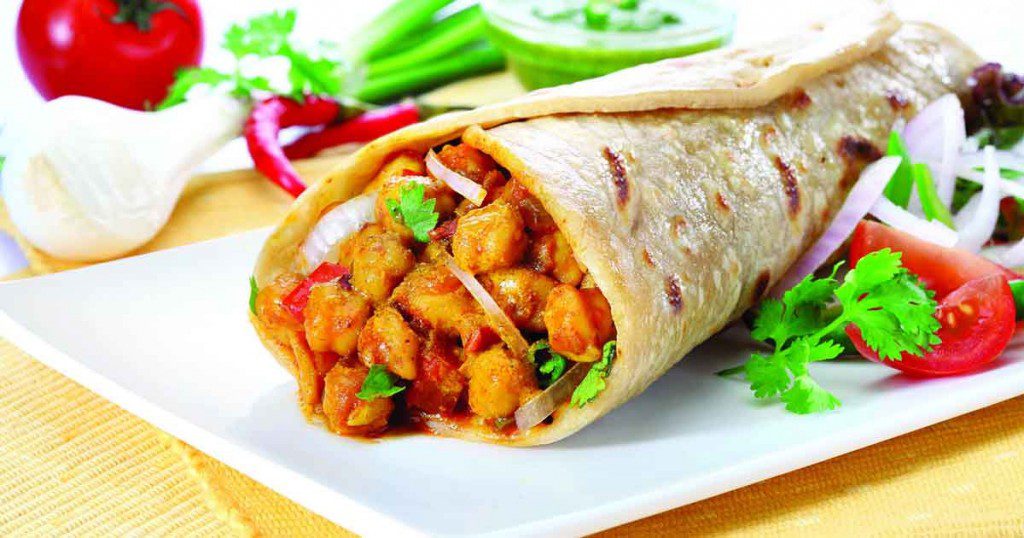The food tech story in India has unfolded somewhat like the Big Bang — the sector burst into prominence in 2014, with big-name deals and plentiful funding. Things, however, cooled down almost immediately — by 2016, the sector had seen a bloodbath. There with shutdowns, firings, and a food tech founder was even held hostage for 36 hours by his irate employees. But as the dust slowly settles on the sector, the few remaining players might be slowly beginning to find their feet.
Faasos has said that it’s now profitable in each of the twelve cities it operates in. That’s a claim few companies would’ve been able to make a year ago, but Faasos’ persistence appears to be paying off. It is an old hand at the food tech game, having been founded all the way back in 2010, and is one of the bigger names — it’s raised nearly Rs. 400 crore. Faasos says it’s tried several approaches to the food business over the years, and has finally hit upon one that can make money.

Faasos’ New Brands And Its Invisible Kitchens
Faasos says that what’s crucial to the food and beverage business is building a brand. McDonald’s doesn’t sell pizza not because it can’t make good pizza — it doesn’t sell pizza because it’s not known for making pizza. While a food brand can take years to develop in the physical world, they’re easier to create online. A year and a half ago, Faasos says it started launching several new city-specific food brands, which specialize in everything from pizza to biryani to Chinese food. Faasos lists these brands on its competitors’ sites, such as Foodpanda, Swiggy, and Zomato, where they find a ready audience, and start getting orders.
What ties all the brands together are something Faasos calls “invisible kitchens.” The company now has over a hundred such kitchens operating in 12 cities across India, and each kitchen can cater to several of its brands. These kitchens are located away from the main roads to avail of cheaper rents, and carry no signage of the brands they service. They’re also only meant for deliveries — customers can’t eat in or take away.

Faasos says these kitchens allow for much greater efficiencies while delivering food. For starters, each kitchen’s fixed costs, such as rent and upkeep, are shared between several brands. It helps that the kitchens are away from expensive areas — Faasos says its rent-t0-sales ratio is less than 5%, while it’s between 10-25% for traditional delivery models. This approach also helps Faasos be nimble — if a brand doesn’t work out, Faasos can quickly discontinue it can replace it with something else. Discontinuing a physical brand would cause major upheaval, but Faasos can do it without skipping a beat — all it needs to do is delist it from the ordering platforms, and start using its kitchen’s resources for something else. Having several brands under one roof also helps Faasos tackle seasonality — the same kitchen can serve Haleem during Eid and Chocolate Cake during Christmas.
This appears to be the beginnings of a true food tech model — the food creating is abstracted away, and customer-facing brands are popularized using the power of the internet. Faasos also says it’s seeing results — each of its 100 invisible kitchens, Faasos claims, are now profitable, and the company is also profitable across 12 cities. Faasos’s overall business metrics are also looking a lot more robust — its average order values have increased by 40% over the last year, helping them make more money per delivery.
Faasos says its “invisible kitchens” approach is the first pivot in the company’s six year history. Zomato too has been attempting something that’s along the same lines — earlier this year, Zomato had launched its cloud kitchens, which would be a shared space for as many as four delivery-only restaurants. Faasos, being a full-stack provider, has been able to integrate its operations even further — it owns all the brands that operate out of its kitchens.
Is food tech rediscovering its mojo?
Faasos’ declaration of profitability is just the latest in a series of heartening developments for the food tech sector. Zomato has been more upbeat about its results in 2017, saying it’s improving its margins as it inches towards being sustainable. Swiggy has just raised a mega Rs. 515 crore round, giving it more resources to maneuver and grow. Even Foodpanda, which was thought to be on the brink in 2015, is having a second wind — the company has just signed Shah Rukh Khan to be its brand ambassador, and is running an aggressive marketing campaign. Through all this, Uber Eats has launched in Mumbai, and remains the dark horse in what increasingly looks like will be a four-way food delivery race.
And what’s more heartening is that this growth appears to have come through genuine innovation, not just through discounting. While there will undoubtedly be challenges to Faasos’s new model — building food brands with no physical presence won’t be easy, as will scaling kitchens across several cities — it does present a new paradigm to serving food online. For too long, food tech businesses had little to offer in the way of tech other than their mobile apps. Chastened by the crash of 2015, food tech companies now appear to be truly innovating — and succeeding.
